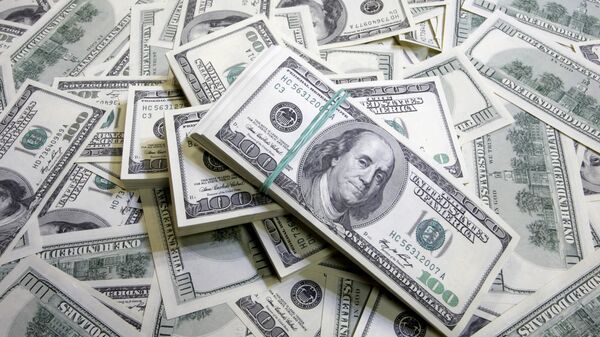The strong dollar is seen as a universal good by some key US monetary authorities. For instance, Treasury Secretary Jacob Lew was quoted as having said: "I have been consistent in saying, as my predecessors have said, that a strong dollar is good for the United States."
As the US has been, up until recently at least, a major importer of everything from commodities like crude oil to imported Chinese —made manufacturing goods, Mr. Lew’s statement would make sense: as a net importer, you benefit when your currency appreciates as you pay less for goods; their prices, independent of shipping, are denominated in other currencies. However, as the US experiences the 're-shoring' of manufacturing facilities and becomes more self-sufficient in terms of commodities, a stronger dollar would have a weird effect on such a transformation.
The deficit in the US trade balance sheet is shrinking and the pace of national debt accumulation is slowing, meaning the US has been exporting more. Now, a stronger currency hurts America's own exporters. Ask the Japanese about that – they are enjoying a weaker yen; it trades at some 119 per dollar. Not to mention the artificially undervalued Chinese renminbi. That said, a weaker national currency is a blessing for your exporters, as they enjoy greater returns in other countries where their goods are sold for stronger currencies.
The strong dollar "will not be good for U.S. manufacturing or the U.S. economy," according to Doug Oberhelmen of Caterpillar, as sales in foreign countries are becoming increasingly important for US growth.
However, Mike Froman, the US Trade Representative, does not yet seem to be concerned that the strengthening dollar is doing harm to American economic competitiveness. During last week’s House and Senate discussions, he said the dollar's FX rate is the responsibility of the Treasury Department – and we have already seen what the Treasury thinks of the matter.
The worst aspect of this story is that a stronger dollar may ultimately take its toll on US employment, undermining the Obama administration’s whole effort to create jobs at home. Now, as American manufacturers are facing losses in overseas sales, they have to think in terms of cost-efficiency, which may prompt them to lay off some personnel. People loitering about without jobs, able to buy less – Mr. Lew, are you sure a stronger dollar is still so good?
It is not that more money-printing could fix the issue; in fact, the US dollar has been depreciating greatly in the past decades. The problem is, with the aggressive easing measures undertaken by the Japanese and European central banks, the yen and the euro are effectively being held down. Meanwhile, the dollar is pushed up by the relative well-being of the US economy and markets' confidence in the greenback.
The US dollar may soon end up similar to so-called 'paper gold.' What the US government can really do at the moment is undertake narrow interventions, which could be supported by more cautious rhetoric from US officials. Other nations are obviously lowering their currencies' FX rates against the dollar to gain a competitive edge (China, Japan and the Eurozone). There is no need for the ‘strong dollar’ rant – it is strong okay, and nothing good has come out of it yet.


